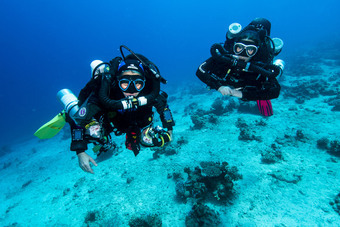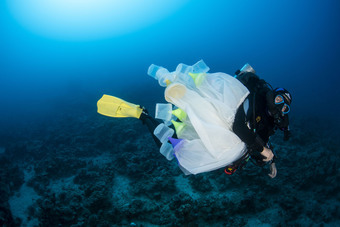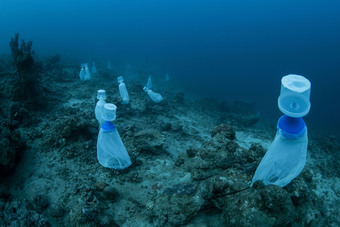Publications:
Scucchia et al. 2020
Depth related parameters, specifically light, affect different aspects of corals physiology, including fluorescence. Green fluorescence protein (GFP)-like pigments found in many coral species have been suggested to serve a variety of functions, including photo-protection and photo-enhancement. Using fluorescence imaging and molecular analysis, we further investigated the role of these proteins on the physiology of the coral Stylophora pistillata and its algal partners. Fluorescence was found to differ significantly between depths for larvae and adult colonies. Larvae from the shallow reef presented a higher GFP expression and a greater fluorescence intensity compared to the larvae from the mesophotic reef, reflecting the elevated need for photo-protection against high light levels characteristic of the shallow reef, thus supporting the “sunscreen” hypothesis. Additionally, given the lower but still occurring protein expression under non-damaging low light conditions, our results suggest that GFP-like proteins might act to regulate the amount of photosynthetically usable light for the benefit of the symbiotic algae. Moreover, we propose that the differences in GFP expression and green fluorescence between shallow and deep larvae indicate that the GFPs within coral larvae might serve to attract and retain different symbiont clades, increasing the chances of survival when encountering new environments.
3- 45 m
Mesophotic “mentions”
27 x (total of 4953 words)
Classification
* Presents original data
* Focused on 'mesophotic' depth range
* Focused on 'mesophotic coral ecosystem'
Fields
Molecular ecology
Physiology
Focusgroups
Scleractinia (Hard Corals)
Symbiodinium (zooxanthellae)
Locations
Israel - Red Sea
Platforms
SCUBA (open-circuit or unspecified)





